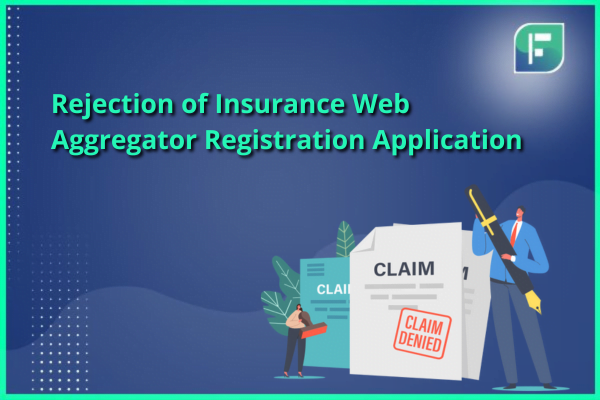Insurance is the one thing which everyone wants to take today so that they can make safety against future uncertain events. But due to the availability of the thousands of insurance policies people got confused. In confusion sometimes they drop the plan to opt for insurance policies or they end up with choosing the wrong policy for themselves. If you are also one of them kindly use the insurance web aggregators. They are the platforms where you will find the true comparison between the policies and you can choose best among them. These platforms are authentic as they formed after proper authentication under the Insurance Act of 1938. They obtain the permission through an application for the insurance web aggregator registration. After registration they got a insurance web aggregator license through which they are permitted to work as IWAs. Hence they are trustworthy and one can go ahead with the same.
Who are Insurance Web Aggregators?
Websites or platforms that connect the purchaser and seller of the insurance policies are called insurance web aggregators. They are the modernized technology friendly version of insurance brokers. Just like insurance brokers they are also the intermediary between the purchaser and the seller of the insurance policy. As due to availability of various policies in the market it is really tough to get the best one without proper research or information. These IWA platforms help you with the same. They provide the true information based comparison between the various policies. This makes it easy to choose the best among them.
Grounds for the Rejection of Application for Insurance Web Aggregator Registration
Some of the key grounds due to which your application for the Insurance Web Aggregator Registration may be canceled or rejected are given below:
- Providing false or incorrect information in your application for IWA Registration
- Hiding important information or not sharing crucial details in your registration application.
- Not disclosing information related to your insurance web aggregator business activities.
- Deliberately giving wrong information or concealing the right information about your insurance web aggregator business.
- Being involved in offering cash or non-cash incentives with respect to rebates or inducements.
- Failing to pay the required fees for registration.
- Inability to maintain the minimum capital required for your registered business.
- Not appointing a principal officer as per the legal rules.
- Running an Insurance Web Aggregator website that provides false or misleading information to people.
- Creating an Insurance Web Aggregator company solely to divert funds from another company.
- Violating any governing laws or other applicable regulations.
- Unable to comply with the documentation
- Having criminal background
Remedy in Case of Rejection of the Insurance Web Aggregator Registration
If the Insurance Regulatory and Development Authority rejects your application regarding the IWA registration, then you must opt for the alternative options. Whenever your application gets rejected it does not reject without giving you a chance or opportunity of being heard. Whenever you get the opportunity of being heard, always take advantage of the same and put your side. Always take help of a professional lawyer to represent you.
Even after the above if your application for the insurance web aggregator registration got rejected then you can do further appeal. That appeal will be done before the Securities Appellate Tribunal that is commonly known as SAT. You must make sure that your application must be filed within 45-days of the rejection of the application which is made for the registration of the insurance web aggregator.
How to obtain Insurance Web Aggregator License?
To obtain the Insurance Web Aggregator License one has to file an application for insurance web aggregator registration. This application must be filed before the Insurance Regulatory and Development Authority. To file the application for the insurance web aggregator registration follow the steps given below:
- Apply for permission to use the term “Insurance Web Aggregator” from the Insurance Regulatory and Development Authority of India.
- Once you receive approval, establish a company or LLP for your business.
- Appoint a principal officer and provide them with necessary training.
- Open a bank account for your company and deposit Rs. 25 lakhs as paid-up capital.
- Submit an online application to IRDA for the Insurance Web Aggregator License along with required documents.
- The application will be reviewed, and they may ask for clarification or grant the license.
- If they request clarification, ensure you resolve it within 30 days to avoid rejection.
Documents Required to Get Insurance Web Aggregator License
Key documents required to complete the procedure of the IWA license are mentioned below. Before applying one must go through these documents so that their application for insurance web aggregator registration will not be rejected:
- Get IRDA’s approval for using “insurance web aggregator.”
- Share company documents like MOA, AOA, CIN, LLP Deed, etc.
- Provide details about your company’s principal officer.
- Submit a CISA-certified report for your website.
- Share your company’s bank statement for paid-up capital.
- Share your entity’s PAN Card number.
- Present a comprehensive business plan.
Conclusion
Insurance Web Aggregators which are also known as IWAs, play a crucial role in simplifying the complex world of insurance policies. They are doing so by offering transparent comparisons, helping consumers make informed choices. However, the process of obtaining an Insurance Web Aggregator License is subject to strict regulations. Hence there are chances of rejection of application for insurance web aggregator registration for various reasons. These reasons may include but are not exhausted to providing false information, non-compliance with essential requirements, or engaging in unethical practices. Ultimately, the Insurance Web Aggregator License can be obtained by adhering to the prescribed procedures. That procedure includes capital investment and compliance with regulatory norms, ensuring that these aggregators continue to serve as reliable and valuable intermediaries in the insurance industry.






